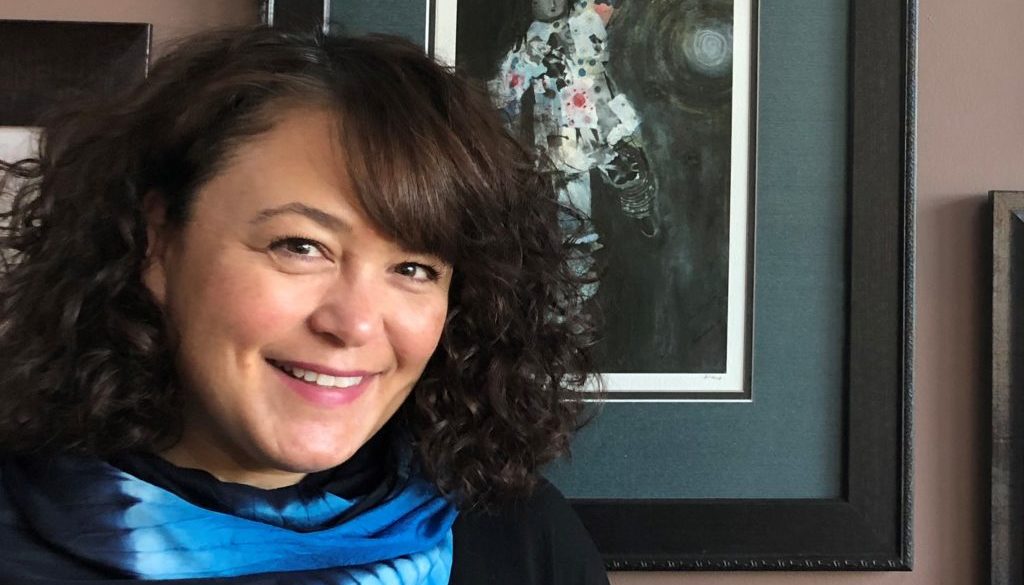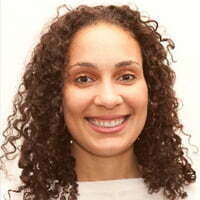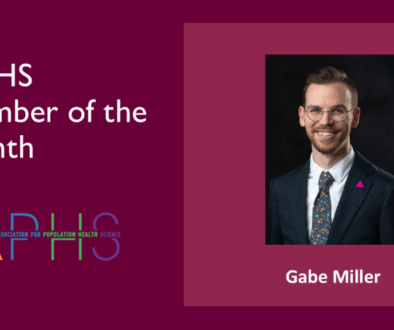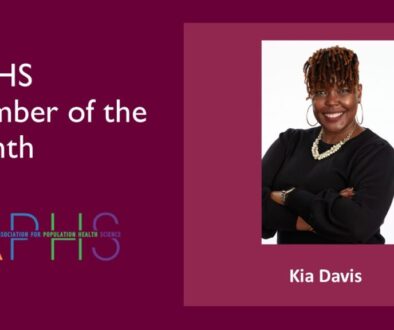Maggie is a Research Assistant Professor (tenure track) in the Social Environment and Health Program/Survey Research Center/Institute for Social Research at the University of Michigan. She is a Social Demographer and Epidemiologist. She joined IAPHS in 2016. Learn more about Maggie on her website or follow her on twitter @mhicken. You can also follow her lab on twitter: University of Michigan RacismLab: @RacismLab.
Tell us a little about yourself, where are you from, where did you go to graduate school, what makes you jump out of bed each morning?
I grew up in Nebraska, but also spent a lot of time in North Carolina before moving to Michigan for graduate school. I love being an interdisciplinary researcher, especially at UM ISR, where this type of research is really supported.
How do you define yourself as a population health professional?
I think the first word that describes me within population health boundaries is transdisciplinary. While my doctoral degree is in public health, I had the good fortune to be trained in the interdisciplinary Population Studies Center at the University of Michigan. The emphasis of my training was on the science and theory, no matter the discipline – so much so that I recall not really understanding these disciplinary boundaries after graduating. Of course, I have grown to understand how research is crafted in different disciplines, but I still maintain that original transdisciplinary core, integrating qualitative and quantitative approaches from across the social and biomedical sciences along with the arts and humanities. I have found that this approach — and its potential to better clarify the social determinants of health inequities and identify intervention points — is what makes science so exciting and powerful.
What disciplines do you engage with and are there disciplines that you would like to engage with?
I probably engage most with the sociology, social psychology, and biomedical literatures (along with epidemiology), but recently, I have begun to engage more with anthropology, legal studies, and the arts. There have been many times when I have wanted to engage with political science more explicitly to understand population-level sentiment.
Describe a current project/initiative that you are excited about.
With an interdisciplinary team, I am currently preparing to go into the field with the sixth wave of the Americans’ Changing Lives study (ACL), the oldest, ongoing, nationally representative longitudinal study of the role of a broad range of social, psychological, and behavioral factors in health and the way health changes with age over the adult life course. With ACL, we have a large array of social, economic, and environmental exposures linked to participants in order to understand the role of social context throughout the entire adult life course. This newest wave includes a home visit with a blood draw for DNA methylation analysis (along with a biospecimen archive for future chemistries and even transcriptomic analysis). With these data, I will examine the ways in which racial residential segregation dynamically impact neighborhood public and private investment/disinvestment patterns — and how these long-term exposures result in differences in the structure of DNA.
Name a population health professional who you admire and why?
A population health professional I greatly admire is the late environmental epidemiologist Steve Wing who was at the University of North Carolina. As I grapple with my own role as a scholar-activist and how I will act on the research I read and produce, I have found his example as an ideal. I was first introduced to his work as a student at UNC and then later when I heard his community-based colleagues discussing their work together. He used rigorous methods to build evidence that community members needed to show the environmental racism underlying the concentrated animal feeding operations (CAFOs) in North Carolina. Furthermore, while he was person with the resources and power to conduct the research, he understood that because he was not a member of the community with which he collaborated, he was not the leader but a colleague.
How did you hear about IAPHS?/Why did you decide to become a member of IAPHS?
I was a RWJF Health and Society Scholar and heard about IAPHS through that network. I decided to become a member because I benefit from discussing important questions with people who look beyond disciplinary boundaries for answers.
Have you attended an IAPHS meeting? If so, what do you like most about these meeting?
The thing that I like the most about the IAPHS meetings is talking with so many other scholars who “get it” when it comes to the importance of integrating disciplines to address population health challenges. These rich discussions challenge and stretch — and improve — my own conceptualizations that ground my research.
What would you tell someone who is considering joining IAPHS?
Do it!
What would you like to see IAPHS do in the future?
I would love to see a structure that allowed from working groups to be formed on specific questions — for manuscript or grant development across institutions.
Favorite population health relevant book:
There are actually two that are related (in my mind they are completely related):
Geoffrey Rose — The Strategy of Preventive Medicine
Derrick Bell — Faces at the Bottom of the Well
But then this one is good to show what happens when you ignore either Rose or Bell (or both): Castro and Singer — Unhealthy Health Policy
Favorite population health relevant academic/news article(s):
Claudia Rankine — The condition of Black life is one of mourning.
Leith Mullings — Interrogating racism: Toward and anti-racist anthropology
Favorite movie, band, non-fiction, book, etc.:
Favorite movie: probably the original Star Wars trilogy because it draws on many classic mythology themes. But also I love Blade Runner.
Fav book — in recent years — probably The Diamond Age, Bloodchild (and others from that collection). The last book that I read that I really enjoyed and still haunts me a little is Sing, Unburied, Sing






All comments will be reviewed and posted if substantive and of general interest to IAPHS readers.